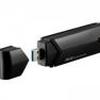According to the head of the USB Implementers Forum, the EU's current charging socket standard is already out of date, and it should be replaced.
After all, it is in the interests of the USB Implementers Forum that as many institutions and enterprises as possible adhere to standards, which is why Jeffrey L. Ravencraft, the organization's executive director, has expressed support for the EU's plans to standardize charging sockets. Ravencraft publicly attacked the EU Commission's plans in a statement released on the internet. Their interoperability and functionality are said to be impaired, and they "create confusion and disagreements," according to the government.
It has already passed the expiration date of the two standards indicated by the EU in a paper (EN IEC 6280-1-3: 2021 and EN IEC 6280-1-2: 2021). They were originally published in August 2019, but were amended by the USB Implementers Forum in May 2021. This includes critical components like as power transmission via USB-C, which can deliver up to 240 watts.
Ravencraft also takes issue with the EU's desire to standardize only a few aspects of USB-C, such as a charging protocol that is only capable of delivering up to 15 watts of power to devices. The USB Implementers Forum, on the other hand, believes that it is critical to record the standards in their entirety in order to assure widespread compatibility. A more general problem identified by Ravencraft is that fixed standards hinder technological growth because new discoveries can only be marginally taken into consideration by the EU in the medium run.
The European Union strives to avoid electronic waste.
The EU Commission issued a draft of its directive at the end of September 2021, and it is now open for public comment. As a result, USB-C should become the "standard connection for all smartphones, tablets, cameras, headphones, portable speakers, and portable video gaming consoles," according to the USB-C Association. The European Parliament and the Council have not yet voted on the Commission's proposal, which is expected soon. Following then, a transition period of 24 months would be in effect. European consumers might save up to 250 million euros per year on unnecessary chargers as a result of the standardization. In addition, about 1,000 tons of electronic garbage per year would be eliminated as a result of this initiative.
The USB Association criticizes European Union for enforcing uniform USB charging sockets.

